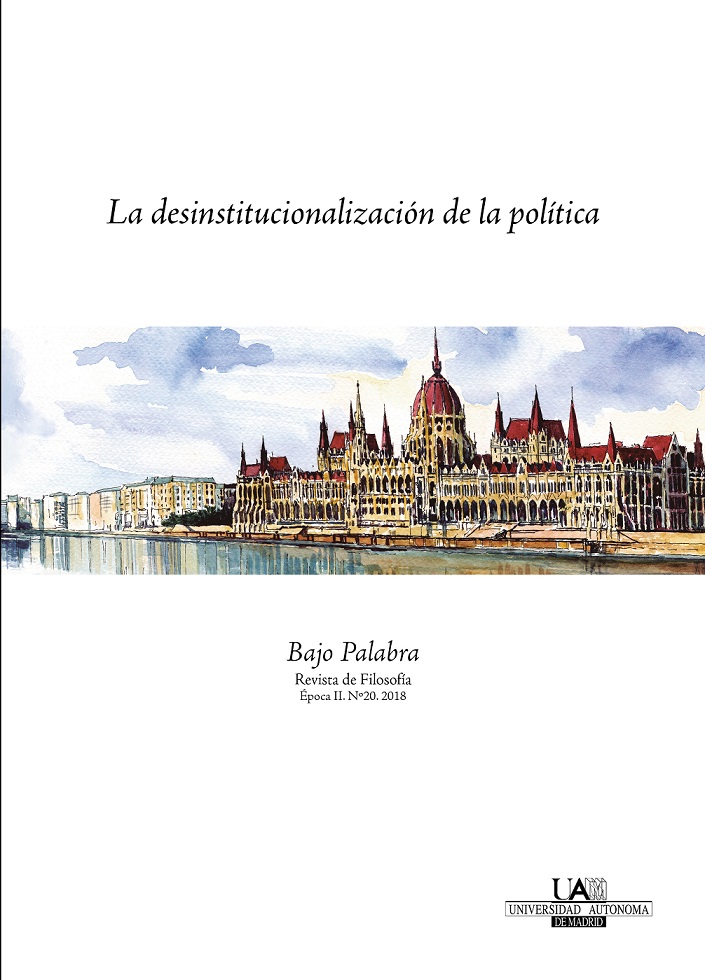Keywords:
Globalization, Inclusion / Exclusion, Fragmentation, Deinstitutionalization Political subjectsAbstract
The growing tendencies of complexity and indeterminacy characteristic of globalization and exacerbated by neoliberal economic policies, produce changes in the economic dynamics of the world market and effects that disrupt the juridical-political institutional frameworks of the states. From this horizon I analyze: how these transformations radicalize the questions about the possibilities of inclusion or exclusion of social agents, the density of fragmenting effects on the formation of collective identities, and ponder the opportunities or constraints of relevant political intervention, or whether there is room for resistance.Downloads
References
BAYÓN, MA. CRISTINA Y GONZALO SARAVÍ, «De la acumulación de desventajas a la fractura social. ‘Nueva’ pobreza estructural en Buenos Aires» en GONZALO SARAVÍ (editor) De la pobreza a la exclusión: continuidades y rupturas de la cuestión social en América Latina. Buenos Aires, Prometeo Libros, 2007, pp. 55-95.
CASTEL, ROBERT, La metamorfosis de la cuestión social. Una crónica del salariado. Barcelona, Paidós, 1995.
CASTELLS, MANUEL, Globalización, Identidad y Estado en América Latina. Santiago de Chile, Temas de Desarrollo Humano Sustentable, PNUD.
http://desarrollohumano.cl/idh/download/Idyest.pdf
DAHRENDORF, RALF, Quadrare il cerchio. Ieri e oggi. Bari, Laterza Editori, 2009.
Foa, Roberto S. and Yaisha Mounk, «The Danger of Desconsolidation», Journal of Democracy. July 2016, Vol 27, No. 3. https://www.journalofdemocracy.org/.../Foa%26Mounk-27-3.pdf
-------------------- «The Sings of Desconsolidatión», Journal of Democracy. January
, Vol. 28, No. 1. https://www.journalofdemocracy.org/article/signs-deconsolidation
GARRETÓN, MANUEL ANTONIO, «Las transformaciones de la acción colectiva en América Latina», en Agustín Martínez (coordinador) Cultura política. Partidos y transformaciones en América Latina, Caracas, CLACSO, 1997.
HELD, DAVID, Modelos de democracia. Madrid, Ed. Alianza, 1996.
Informe 2017 Latinbarómetro www.latinobarometro.org/LATDocs/F00006433-InfLatinobarometro2017.pdf
Social Precarity and Social Integration. Reporte escrito por Duncan Gallie and Serge Paugam. For the European Commission Directorate-General Employment Eurobarometer 56.1 October 2002. ec.europa.eu/employment_social/soc-prot/soc-incl/eurobarometer_en.pdf
JACOBSON, DAVID, Rights Across Borders. Immigration and the Decline of Citizenship. London, Ed. The Johns Hopkins University Press, 1997.
LACLAU, ERNESTO Y CHANTAL MOUFFE, Hegemonía y estrategia socialista. Hacia una radicalización de la democracia. Madrid, S. XXI, 1987.
Luhmann, Niklas y Raffaele De Giorgi Teoría de la sociedad. Guadalajara, U de G/UIA/ITESO, 1993.
SANTIAGO, JOSÉ, «La estructura social a la luz de las nuevas sociologías del individuo» en Revista Española de Investigación Social, No. 149, Enero-Marzo 2015, pp. 131-151, Madrid.
SARAVÍ, GONZÁLO, Transiciones vulnerables: Juventud, desigualdad y exclusión en México. México, Ed. CIESAS, 2009.
SASSEN, SASKIA, Expulsiones. Brutalidad y complejidad en la economía global. 1a. ed. Traducción Strella Mastrangelo, ed. Katz, Buenos Aires, 2015.
YÁÑEZ, SONIA, «La flexibilidad laboral como nuevo eje de la producción y la reproducción», en Todaro, ROSALBA Y YAÑEZ, SONIA (editoras), El trabajo se transforma. Relaciones de producción y relaciones de género. Santiago de Chile: Ed. Centro de Estudios de la Mujer, 2004.
ZOLO, DANILO, Democracia y complejidad. Un enfoque realista. 1ª ed. en castellano, Trad. Horacio Pons, Ed. Nueva Visión, Buenos Aires, 1994.
